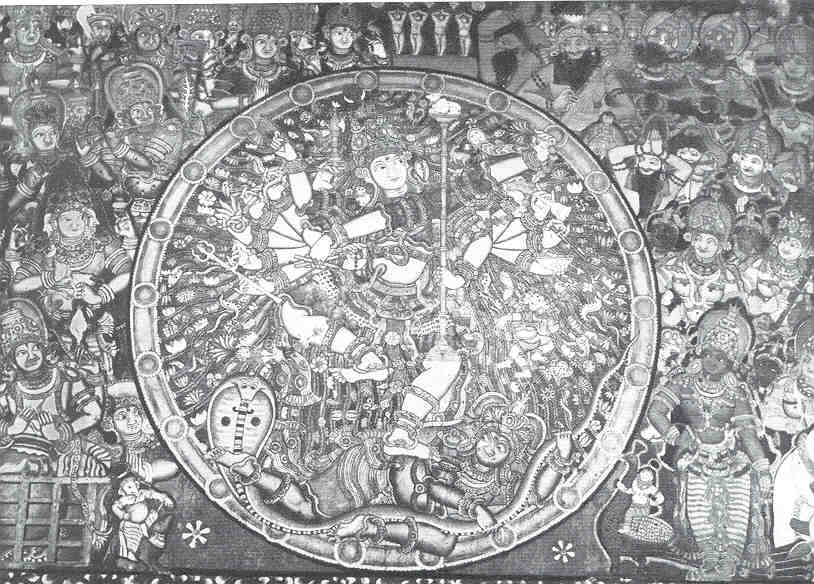Abodes of Ganesha
Temples of Tamilnadu
|

Ettumaanur Mahadevar Temple
Temples of Kerala
The Ettumaanur Mahadevar temple is one of the most celebrated Shiva temples in Kerala, and is on the Ernakulam Tiruvanandapuram railroad south of Kottayam.
Legend has it that Khara (of the Khara Dhooshana demon duo) of Ramayana worshipped Shiva at Chidambaram and obtained from him three Shivalingams and journeyed holding one shivalingam on each hand and one in his mouth. He sojourned at Vaikom, and set the shivalingam on the ground and to his dismay realized that it had gotten rooted to the ground. Kharan therefore installed the other two shivalingams at Ettumanur and Kaduthuruthy. It is believed that visiting these triad of temples in a single day is of great significance.
Legend also has it that Khara installed an image of Krishna in the north western corner of this temple.
There are several other legends associated with this shrine. Legend has it that Shiva created a deer and set it to play in an island; when Parasurama reclaimed land from the sea, this island is said to have become part of what is Kerala now. The isle of the deer is referred to as Harinadweepa. The malayalam word for deer is Maan, and hence this place came to be known as Maanoor.
Legend has it that this is a very ancient shrine and that it was in wilderness thanks to a curse of Lomaharsha rishi, a disciple of Vyasa, and that worshipped was restored here by Vilwamangala swamy who is associated with several other temples in Kerala. Inscriptions testify to renovations that were carried out in the 16th century CE here.
The temple: The west facing temple here has a circular sanctum covered with a conical copper plated roof crowned with a kalsam. The mukhamandapam in front of the temple bears two images of Nandi, one of stone and another of metal. Although there is no shrine to Parvati, the rear of the sanctum is revered as Parvati's shrine.
A rectangular circumambulatory passage surrounds the sanctum. The sanctum bears wood carvings of superior workmanship portraying legends from the Ramayana and the Bhagavata puranam.
Also of great workmanship are the murals on the western entrance to the temple; mention must be made of the painting of the dance of Shiva.
There are also shrines to Saasta, Ganapati and Dakshinamurthy in the temple.
A golden staff, visible from a distance is in front of th e shrine.
At the entrance to the temple is a large metal lamp; visitors make offerings of oil and the soot that collects from the burning of the oil is believed to have medicinal value.
Festivals: The 10 day long festival in the malayala month of Kumbham concluding on the Ardra asterism is the temple's annual festival.
On the eigth day of the festival, the processional image of the deity is taken to a specially decorated site in the north east corner of the temple, when thousands throng to visit the shrine.
On this day, a unique treasure of the temple (offered by the Maharaja of Travancore) - the seven and a half elephants (ezhara pon aana) representing the eight dik paalakas or the guardians of the cardinal directions are displayed. Seven of these golden elephants are two feet in height while the eighth is a foot high.
